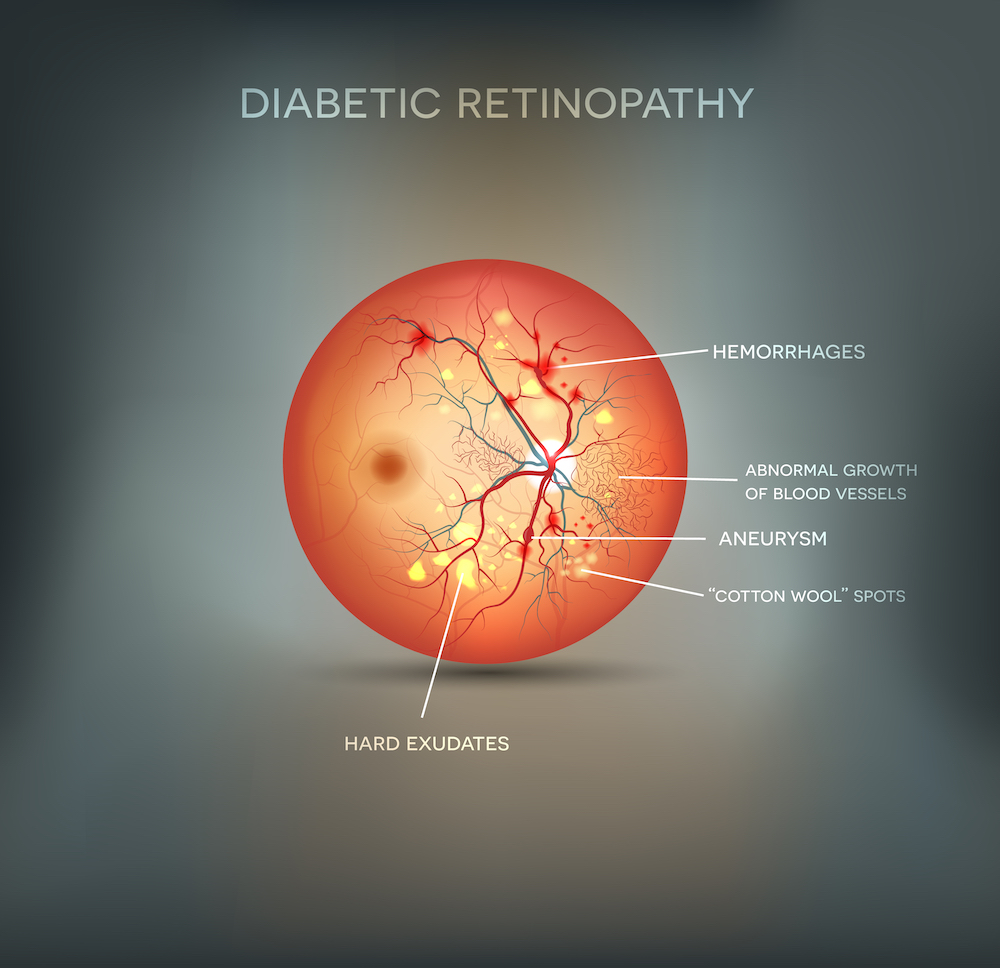
Do you have diabetes? If so, the prevention of diabetes-related eye diseases should be a priority for you. Diabetes is a disease characterized by high blood glucose. When you have this disease, your body either does not produce or respond to insulin that delivers blood sugar or glucose to your body cells.
Having high blood glucose outside the cells where it belongs can damage the nerves and blood vessels throughout your body. These include those that run to your eyes.
How Diabetes Affects the Eyes
Diabetes can gradually damage your eyes and cause vision loss or blindness. Fortunately, managing your condition and undergoing regular comprehensive eye exams can help prevent vision issues and stop them from worsening. Diabetic eye disease refers to several diabetes-related conditions, such as:
Diabetic Retinopathy
This disease occurs when the tiny blood vessels in your eye leak and bleed into your retina, which acts like the eye’s camera film to help you see. This condition is a leading cause of blindness and affects more than one in four people living with diabetes. It is essential to undergo regular exams so that your eye doctor can provide immediate treatment if he/she spots signs of diabetic retinopathy.
Macular Edema
The macula at the center of the retina provides straight, sharp vision. Diabetes can cause blood vessels in the macula to leak, causing swelling. This swelling is what eye doctors call macular edema, which results in distorted or blurred vision.
Cataracts
A cataract is a clouding of the eye’s lens, which can cause colors to appear dull and vision to blur. Cataracts tend to develop earlier and progress faster in those living with diabetes due to increased blood glucose. Diabetes is the leading risk factor for cataracts, aside from aging. Generally, cataract surgery can help restore your vision.
Glaucoma
Glaucoma is a silent sight thief that damages the optic nerve and may cause the loss of peripheral vision due to increased fluid pressure in the eye. Diabetes can cause neovascular glaucoma. Vision loss usually begins without any perceptible symptoms. Glaucoma can lead to permanent vision loss if left untreated. However, medications and surgery can help delay its progression.
Swelling of the Eye’s Lens
Diabetes can cause the eye’s lens to swell, leading to blurry vision. Rapid fluctuations in your blood glucose levels can affect the shape of your lens, causing vision blurring. However, stabilizing your blood sugar should restore your vision.
Prevention of Diabetic Eye Disease
The best way to prevent diabetic-related eye conditions is to manage your cholesterol, blood pressure, and blood glucose levels. Also, smoking can damage your blood vessels, including those in your eyes. So, it is best to quit if you are a smoker. It is also advised to protect your eyes from the sun’s harmful UV rays since they can accelerate the progression of cataracts.
Conclusion
If you are living with diabetes, you must undergo regular comprehensive eye exams. That will allow your eye doctor to identify problems early and recommend the most appropriate treatments to prevent vision loss.
For more on diabetes and its effects on the eye, contact Rieger Eyecare Group at our Normal, Illinois office. Call (309) 320-2020 to schedule an appointment today.











